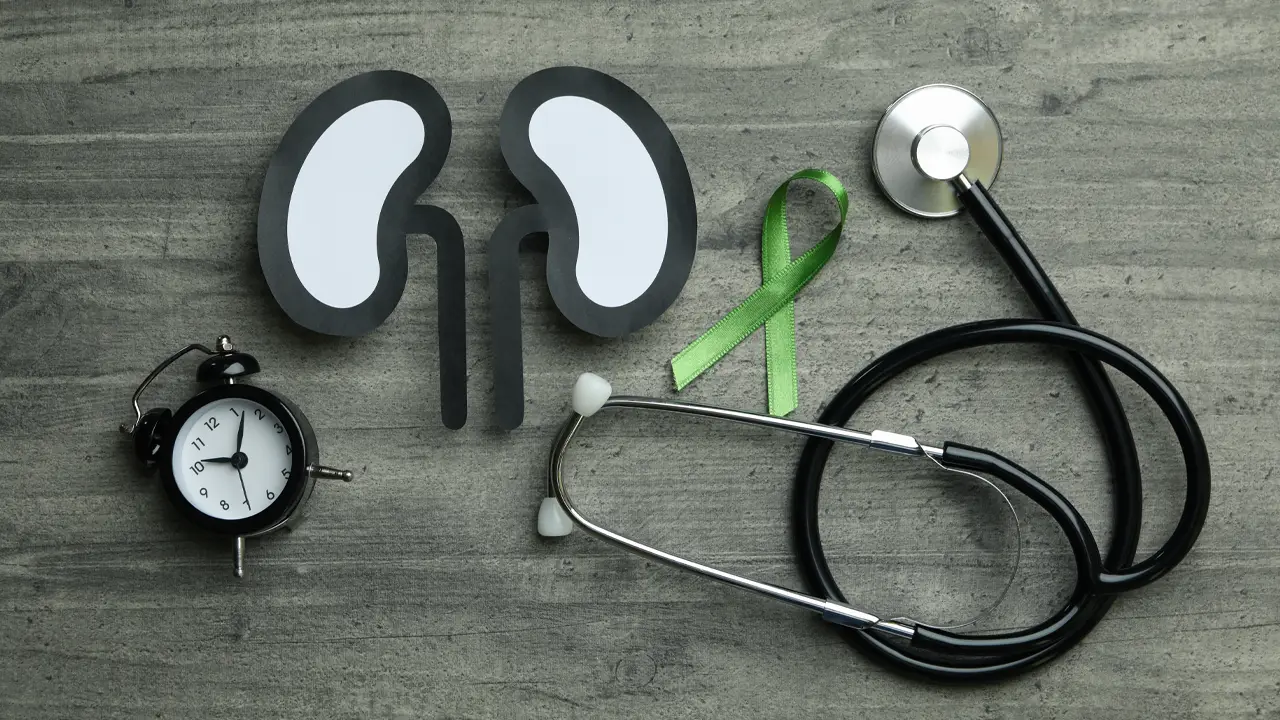March is a significant month for those living with kidney disease, as it is designated as National Kidney Month in the United States. This annual observance aims to raise awareness about kidney disease, its risk factors, and prevention measures. Kidney disease affects millions of people worldwide, with an estimated 37 million adults in the United States alone living with chronic kidney disease (CKD). One positive aspect to note is that the earlier one becomes aware of their kidney disease, the more quickly they can take measures to mitigate any further damage to their kidneys.
What is National Kidney Month?
National Kidney Month is an annual observance held in March to raise awareness about kidney disease, its risk factors, and prevention measures. The event is sponsored by the National Kidney Foundation (NKF) and other organizations dedicated to improving kidney health. The theme of National Kidney Month 2023 is “Follow Your Kidney Health,” emphasizing the importance of early detection, timely treatment, and self-management to enhance the quality of life for those living with kidney disease.
Why is National Kidney Month important?
National Kidney Month is an essential health observance because it provides an opportunity to educate people about kidney disease, its risk factors, and prevention measures. Kidney disease is a significant public health concern, and it is essential to take steps to prevent it or manage it effectively. Early detection is critical to preventing kidney disease’s progression, and timely treatment can help prevent complications such as kidney failure. Raising awareness about the importance of kidney health can help reduce the incidence of kidney disease and improve the quality of life for those living with the disease.
How is Kidney Disease Diagnosed?
Kidney disease can be diagnosed through a combination of physical exams, medical history, and lab tests. Here are the steps involved in diagnosing kidney disease:
- Physical exam: A doctor will examine you for signs of kidney disease, such as swelling, fluid retention, high blood pressure, and changes in skin color.
- Medical history: The doctor will ask you about any symptoms you are experiencing, family history of kidney disease, and any medical conditions you have.
- Urine tests: Urine tests can detect abnormalities such as protein or blood in the urine, which can be a sign of kidney damage or disease.
- Blood tests: Blood tests measure levels of waste products, such as creatinine and blood urea nitrogen (BUN), in the blood. High levels of these substances may indicate that the kidneys are not functioning properly.
- Imaging tests: Imaging tests such as ultrasound, CT scan, or MRI may be used to look for abnormalities in the kidneys.
- Kidney biopsy: In some cases, a doctor may need to perform a kidney biopsy to determine the cause and severity of kidney disease. This involves taking a small sample of kidney tissue for analysis.
It is important to note that early detection and treatment of kidney disease can slow or prevent its progression, so it is important to talk to your doctor if you have any concerns about your kidney health.
How can you support kidney health?
There are many ways to support kidney health, including:
- Get regular check-ups: Regular check-ups with your healthcare provider can help detect kidney disease early.
- Manage blood pressure: High blood pressure can damage the kidneys, so it is essential to keep your blood pressure under control.
- Manage blood sugar: High blood sugar levels can also damage the kidneys, so it is crucial to manage blood sugar levels if you have diabetes.
- Quit smoking: Smoking can damage the blood vessels in the kidneys, leading to kidney disease.
- Exercise regularly: Regular exercise can help reduce the risk of kidney disease and other health conditions.
Other FAQs:
Q. Can kidney disease be prevented?
A. Yes, kidney disease can be prevented by managing blood pressure and blood sugar levels, quitting smoking, maintaining a healthy weight, and getting regular check-ups.
Q. What are the symptoms of kidney disease?
A. The symptoms of kidney disease can include fatigue, difficulty sleeping, decreased appetite, muscle cramps, swelling in the feet and ankles, and changes in urine output or appearance.
Q. How is kidney disease treated?
A. Treatment for kidney disease can vary depending on the stage and underlying cause. It may include medications to control blood pressure and blood sugar levels, dietary changes, and in severe cases, dialysis or kidney transplantation.
Q. Who is at risk for kidney disease?
A. Anyone can develop kidney disease, but certain factors can increase the risk, including age, diabetes, high blood pressure, obesity, and family history of kidney disease.
Q. How can I support National Kidney Month?
A. There are many ways to support National Kidney Month, such as making a donation to the National Kidney Foundation, sharing educational resources on social media, participating in a kidney walk, or advocating for policies that support kidney health.
It is important to always consult with your doctor before making any changes to your healthcare routine, including but not limited to starting or stopping a medication, or beginning a new treatment.
DrKumo Supports National Kidney Month
As a leader in remote patient monitoring technology (RPM) solutions, DrKumo is committed to promoting kidney health. At DrKumo, we believe that prevention and early intervention are critical to improving outcomes for patients with kidney disease. Our remote patient monitoring technology enables healthcare providers to monitor their patients’ health conditions in real-time, providing insights that can help identify potential issues before they become more serious. By detecting changes in vital signs, tracking symptoms, and managing medications remotely, healthcare providers can provide proactive care that improves outcomes and reduces hospital readmissions.
In addition to supporting National Kidney Month, DrKumo is dedicated to helping healthcare providers deliver high-quality care for patients with kidney disease. Our user-friendly platform is designed to make remote patient monitoring simple and effective, with features that enable healthcare providers to connect with their patients, monitor their health, and intervene when necessary.
Read more: What is the Latest Treatment for Chronic Kidney Disease?
Takeaway
National Kidney Month is an opportunity to raise awareness about kidney disease and its impact on millions of people worldwide. Through education, prevention, and early intervention, we can improve outcomes for individuals with kidney disease and reduce the burden of this chronic condition on healthcare systems and society as a whole.
Remote patient monitoring technology solutions, such as those offered by DrKumo, provide a powerful tool for healthcare providers to deliver proactive care for patients with kidney disease. By leveraging technology to monitor vital signs, track symptoms, and manage medications remotely, healthcare providers can intervene early and prevent complications, ultimately improving outcomes and reducing hospital readmissions.
Contact us today to learn more about our solutions and how we can support your kidney health journey.








